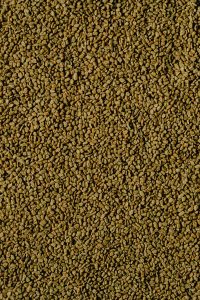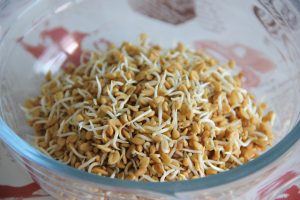
Fenugreek is a popular herb that has been used for thousands of years and is known for its many purported health benefits. The herb, scientifically known as Trigonella foenum-graecum, is native to the Mediterranean region, but it is now found throughout the world. It is used in many traditional dishes and is an important ingredient in many cuisines.
Fenugreek is an annual herb with a strong, bittersweet taste. It has small yellow flowers and an aroma similar to maple syrup. The plant is used for various culinary and medicinal purposes and the leaves, seeds, and roots of the plant can all be used in different ways. The seeds are the most commonly used part of the plant and are often ground into a powder or eaten whole.
Nutritional Benefits of Fenugreek
First, let’s look at the composition of fenugreek. It’s rich in essential vitamins and minerals that are essential for proper health, including vitamin C and K, calcium, magnesium, potassium, zinc, iron, and selenium. It also contains high levels of soluble and insoluble dietary fiber, which helps promote gut health and improves digestion.
Fenugreek is also a significant source of plant-based protein. It contains all nine essential amino acids and provides approximately 25% of its calories from protein. This makes it a valuable addition to vegetarian and vegan diets.
Fenugreek is a good source of antioxidants. These compounds help protect the body from oxidative stress, which can lead to degenerative illnesses such as heart disease, cancer, and diabetes. In addition to its antioxidant content, fenugreek also contains various phytochemicals such as coumarins, saponins, and flavonoids, which may have beneficial effects on health.
Fenugreek is also known for its anti-inflammatory properties. It contains compounds such as 4-hydroxyisoleucine and diosgenin, which may help reduce inflammation and boost immunity. This makes it a great choice for individuals who suffer from inflammatory conditions such as arthritis and irritable bowel syndrome.
The most impressive health benefit of fenugreek is its ability to lower blood sugar levels and improve insulin sensitivity. This makes it a great choice for individuals with diabetes or those at risk of developing the condition. In addition, some studies suggest that fenugreek may help reduce cholesterol levels and improve cardiovascular health.
Fenugreek is also known to boost libido and stamina. It’s been used in traditional Indian medicine to treat infertility and low libido. Anecdotal evidence suggests that fenugreek can improve libido. However, further research is needed to confirm these effects.
History of Fenugreek
The history of fenugreek goes back thousands of years, with archaeological evidence of it being used in Ancient Egyptian, Chinese, Indian, and Middle Eastern cultures. The history of fenugreek is intertwined with the cultures and economies of many different civilizations.
Fenugreek is a member of the pea family and has been used for centuries in traditional medicine to treat a wide range of ailments, from digestive issues to respiratory illnesses. The ancient Egyptians used it as an expectorant, a remedy for stomach aches, and as a diuretic to cleanse the body. In ancient China, fenugreek was used to treat fever and colds, and was also thought to help with digestive issues. In India, fenugreek was used in traditional Ayurvedic medicine to treat diabetes and other metabolic disorders.
In the Middle Ages, fenugreek began to be used in Europe, primarily as a culinary spice. During this time, it was also used in perfumery and as an ingredient in cosmetics. By the 1600s, it had become a popular ingredient in many dishes and was thought to have medicinal benefits.
In the 19th century, fenugreek became an important crop in India, and the country became a major producer of the spice. At this time, the grain was used for both medicinal and culinary purposes. Fenugreek was used to make curry pastes, pickles, and even bread.
In the 20th century, fenugreek was used as a natural home remedy for a variety of ailments. It was also used topically for anti-inflammatory and anti-fungal treatments. As medical research advanced, researchers began to understand the health benefits of fenugreek, and it began to be used in modern medicine.
Today, fenugreek is widely used around the world and is a popular ingredient in many types of cuisine. It is also a popular supplement, used to treat a variety of health conditions. In Ayurvedic medicine, it is used to balance the three doshas, the three energy forces in the body. It is also used to help with diabetes, digestion, and even menopausal symptoms, such as hot flashes.
Given its long history, it is no wonder that fenugreek is still used today and is considered to have many health benefits. Whether it is used as a culinary spice, a home remedy, or in modern medicine, fenugreek has been a part of many cultures and economies throughout the centuries, and its use continues to spread.

Cooking with Fenugreek
When it comes to cooking with fenugreek, it can be used in a variety of ways. It is often used as a spice in curries, soups, and stews. It can also be used to flavor dals and lentils. It is also used to make pickles and chutneys. Fenugreek can be used dry or wet and can be used whole or ground.
For the best flavor, it is best to dry roast fenugreek seeds before grinding into a powder. This will bring out the nutty, slightly sweet flavor of the seeds. Once the powder is ready, it can be used in a variety of dishes.
Fenugreek can be used to make curries, dals, and soups. It can also be used to flavor vegetables such as potatoes, cauliflower, and spinach. Fenugreek can be used to make chutneys, pickles, and dips. It can also be used to make tea and as a flavoring agent for tea, coffee, and other beverages.
When cooking with fenugreek, it is important to remember that a little goes a long way. A small amount of fenugreek can go a long way in adding flavor to a dish. It should be added in small amounts at the end of cooking, as the flavor can become too strong if overcooked.
Clinical Trials on Fenugreek
Due to its potential health benefits, fenugreek has been studied in a number of clinical trials. One of the most notable areas of research has been its potential to improve diabetes symptoms. Several randomized, controlled studies have found that taking fenugreek extract can reduce fasting blood sugar levels, and improve insulin sensitivity in people with type 2 diabetes.
Fenugreek has also been studied for its potential to improve digestive health. A number of studies have found that taking fenugreek supplements can reduce symptoms of constipation, as well as improve overall digestion and nutrient absorption. This is thought to be due to fenugreek’s high content of dietary fiber, which is known to help move food through the digestive system more quickly.
Fenugreek has also been studied for its potential to improve blood sugar control and reduce inflammation. Animal studies have found that fenugreek extract can reduce levels of inflammatory markers, such as C-reactive protein and interleukin-6, in people with type 2 diabetes. It has also been found to reduce fasting blood sugar levels, and improve insulin sensitivity.
Fenugreek has also been studied for its potential to improve heart health. Several studies have found that taking fenugreek extract can reduce levels of ‘bad’ LDL cholesterol and triglycerides, while increasing levels of ‘good’ HDL cholesterol. Fenugreek extract has also been found to reduce levels of inflammatory markers associated with cardiovascular disease, such as C-reactive protein.